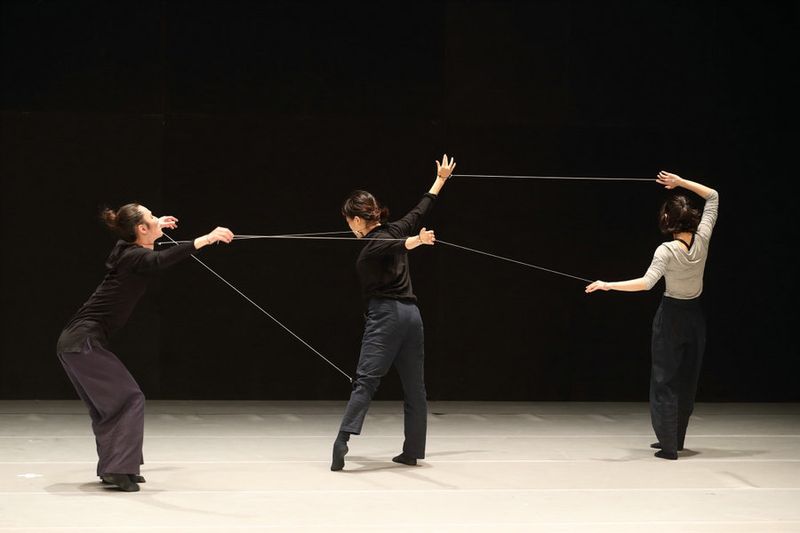17 Top Reasons Relationships Fall Apart
Relationships rarely fall apart overnight. You begin with hope, laughter, and the belief that you’ve found your person. But somewhere along the way, something shifts. Whether it’s silence, little hurts that go unspoken, needs that get buried and truths that never make it to the surface.
It’s not always cheating. It’s not always screaming fights or some huge betrayal. Sometimes, relationships fall apart in the quiet spaces—through neglect, miscommunication, or two people silently growing in different directions.
Here are 17 of the most common (and often overlooked) reasons relationships fall apart—so you can spot them, heal from them, or maybe even prevent them.
1. Poor communication habits

Poor communication isn’t just about the absence of words; it’s about the words that are spoken and how they’re conveyed. Sometimes, it’s the tone that builds walls, the blame that ignites fires, or the avoidance that breeds distance.
Have you ever found yourself in a conversation, yet felt so unheard that it left you even more alone? That’s the heart of poor communication habits. It’s crucial to not just talk but to listen, really listen. When we tune out, the connection weakens.
Consider this: Every unspoken word and every misunderstood gesture chips away at what once seemed unbreakable. Relationships thrive on understanding, and understanding requires effort, patience, and vulnerability. The next time words form on your lips, think about their impact. Are they building bridges or burning them?
2. Emotional disconnection

Emotional disconnection creeps in quietly, often unnoticed until the silence feels deafening. It starts with the little things—moments once shared, now taken for granted or left unspoken. Imagine coming home after a long day, yearning for that comforting embrace, only to feel like two ships passing in the night.
This distance doesn’t announce its arrival; it sneaks in through the unnoticed moments—those times you stop checking in on each other, those stories left untold. The laughter fades, and soon, you’re strangers under the same roof.
Reconnecting takes intention. It’s about sharing, even when it feels trivial. It’s about holding hands without needing a reason. Emotional intimacy isn’t a destination; it’s a journey taken together, one step at a time, every single day.
3. Unresolved resentment

Unresolved resentment is like a garden left untended, where weeds of bitterness grow deep and wild. You think one argument won’t matter, but it’s the ones left to fester that poison the soil of your relationship. Picture this: Every unsaid ‘I’m sorry,’ every unexpressed hurt becomes a brick in the wall that divides you.
It’s easy to ignore the little grievances, hoping they’ll disappear. But they don’t. They linger, casting shadows over moments that should be bright.
Healing requires vulnerability. It’s about having those uncomfortable conversations, no matter how much you want to avoid them. Apologies aren’t just words; they’re bridges back to each other. Without them, the unspoken grievances grow, and the love once shared becomes a distant memory.
4. Avoiding hard conversations

Avoiding hard conversations is like sweeping dust under the rug—it’s out of sight but not gone. These are the talks about money, intimacy, future plans, or anything that feels like treading on eggshells. Imagine living with a ticking clock, each unspoken word a second closer to explosion.
When we shy away from hard topics, we create landmines in our path. They’re the silent dealbreakers, lingering in the background, waiting to detonate.
Having these conversations requires courage and honesty. It’s about recognizing that discomfort today can prevent heartbreak tomorrow. Embrace the chance to voice your truth, even when it shakes the ground beneath you. Only then can you build a foundation strong enough to withstand the tremors of life.
5. Performing instead of being real

Performing instead of being real is the silent thief of authenticity. When you put on a brave face to ‘keep the peace,’ you slowly lose pieces of yourself. Picture a stage, where your true self waits in the wings while a perfect version bows to the audience.
This performance might maintain harmony, but it creates an emotional distance. Over time, pretending becomes a habit, and suddenly, you’re living with a stranger—yourself.
Being real requires daring to show up as you are, without the fear of judgment. It’s about peeling back the layers and sharing your true thoughts and feelings. Authenticity brings freedom, nurturing a connection where both can exist as their true selves, not actors in a charade.
6. Expecting your partner to read your mind

Expecting your partner to read your mind is like playing a game with no rules. You have needs, but they remain locked behind an invisible barrier, waiting to be magically understood. Can you recall a time when you felt let down, simply because what you wanted was never voiced?
It’s a common trap, assuming that love equates to telepathy. Yet, unspoken needs lead to unmet expectations, and the resulting disappointment can breed discontent.
Communication is the bridge to understanding. Speaking your desires aloud, however vulnerable it feels, opens the door to deeper connection and fulfillment. Let your needs be known; let your partner be your ally, not a fortune teller.
7. Trying to change each other

Trying to change each other resembles sculpting a masterpiece from a block of marble—it’s tempting to shape your partner into the vision you hold. But love isn’t about molding someone into your ideal; it’s about accepting them as they are.
Think about the frustration that builds when you see your partner as a project rather than a person. This desire to change often speaks more about our own insecurities than their shortcomings.
Instead of focusing on transformation, celebrate growth together. Encourage each other’s strengths and support one another’s paths. Love flourishes when both partners walk side by side, not when one drags the other toward a supposed finish line.
8. Outgrowing each other

Outgrowing each other is the evolution of life playing out in the theater of love. As individuals, we grow, we change, and sometimes, we drift apart. It’s not a failure; it’s a realization that sometimes love isn’t enough to keep two people on the same path.
Imagine walking a familiar road, only to find yourself yearning for different landscapes. It happens, and it’s okay.
Letting go is painful but can be a powerful act of love. It’s acknowledging that you wish each other the best, even if that means apart. Growth should be celebrated, and sometimes, the most loving thing is to release each other to follow their own journeys.
9. Lack of emotional repair after conflict

Lack of emotional repair after conflict leaves cracks in the relationship’s foundation. It’s not the conflict itself that’s damaging; it’s the absence of repair that weakens the bond.
Imagine a vase, beautiful but cracked. Without mending, it can’t hold water, just like a relationship can’t hold happiness without healing.
Emotional repair means acknowledging hurt, apologizing sincerely, and striving to understand each other’s perspectives. It’s about rebuilding trust and restoring connection. Every conflict is an opportunity to grow closer if both are willing to put in the effort to mend what’s been broken.
10. One person carrying all the emotional labor

One person carrying all the emotional labor is like rowing a boat alone while the other enjoys the view. It’s exhausting and unsustainable, eventually causing resentment.
Relationships are partnerships, not solo endeavors. When one partner becomes the emotional caretaker—remembering birthdays, planning dates, mediating conflicts—it creates an imbalance.
Sharing the load requires open conversations about responsibilities and expectations. It’s about recognizing that both should contribute to the emotional wellbeing of the relationship. Equality in effort nurtures a harmonious connection, where both partners feel valued and supported.
11. Repetition of toxic patterns

Repetition of toxic patterns is like dancing the same steps on a broken record. You argue, you make up, only to find yourselves back at square one, replaying the same scenes.
These cycles are familiar yet destructive, leaving you stuck in a loop that feels impossible to break. It’s exhausting, draining the joy from your shared moments.
Breaking free requires conscious effort to recognize these patterns and the courage to change them. Seeking help, whether through books, counseling, or honest self-reflection, can pave the way to a healthier, more fulfilling relationship. Change starts with the willingness to step off the merry-go-round.
12. Complacency

Complacency is the quiet enemy of love, sneaking in when things become too comfortable. It’s easy to stop trying, to let the daily grind replace the excitement of romance. The spark dims when you stop courting each other, when laughter becomes a memory.
Think about the last date night you planned or the last time you asked, ‘How was your day?’ Without nurturing, the connection withers.
Reviving romance requires intention. Surprise each other, ask questions, and keep the curiosity alive. Complacency can be beaten with effort, turning the mundane into magic.
13. Different definitions of intimacy

Different definitions of intimacy can create a chasm between partners. It’s not just intimacy; it’s the myriad ways people express love and need it reciprocated.
Imagine one partner longing for physical touch, while the other craves emotional conversations. These differing needs aren’t wrong, but they demand understanding.
Finding common ground requires open dialogue about what intimacy means to each of you. It’s a dance of compromise, where both can feel fulfilled. Love languages vary, but when spoken together, they create a symphony of connection that resonates deeply.
14. Lack of shared direction or life goals

Lack of shared direction or life goals pulls lovers apart. You’re on the same ride, but your destinations differ—one dreams of a bustling city life, the other imagines a quiet countryside.
It’s not about right or wrong; it’s about aligning visions. Without shared goals, the journey becomes a tug of war.
Exploring these dreams together, finding compromises, and setting mutual goals are steps toward a harmonious future. It’s about steering the tandem bicycle in the same direction, creating a path that fulfills both.
15. Trust erosion—not just infidelity

Trust erosion—often mistaken for just infidelity—is much broader. It’s the small lies, the secrets kept, the promises broken, even if unintentional.
Think of trust as a delicate sandcastle. It’s strong when built with care, but even the smallest waves can wash it away.
Rebuilding trust means honesty, transparency, and reliability. It requires consistent actions that reinforce your words. Trust, when nurtured, creates a safe harbor, fortifying the relationship against external storms.
16. Not feeling emotionally safe

Not feeling emotionally safe transforms love into a prison. It’s the fear of judgment, dismissal, or backlash that keeps you from speaking your truth.
When emotional safety is compromised, vulnerability becomes a risk rather than a gift. Imagine wanting to share your heart but fearing it might be trampled.
Creating a safe space requires mutual respect and empathy. It’s about listening without judgment, validating feelings, and cherishing each other’s emotional landscapes. Safety fosters a bond where love can flourish freely.
17. Assuming love will be enough

Assuming love will be enough is the fairytale trap many fall into. Love is the spark that ignites passion, but it needs more to sustain it—effort, compromise, and understanding.
Picture two lovers under a starlit sky, believing their bond is invincible. Yet, love without action is like a fire without wood—beautiful but fleeting.
Nurturing love is about continuous growth, shared experiences, and unwavering support. It’s about working together to keep the flame alive, ensuring the light of love never dims.







